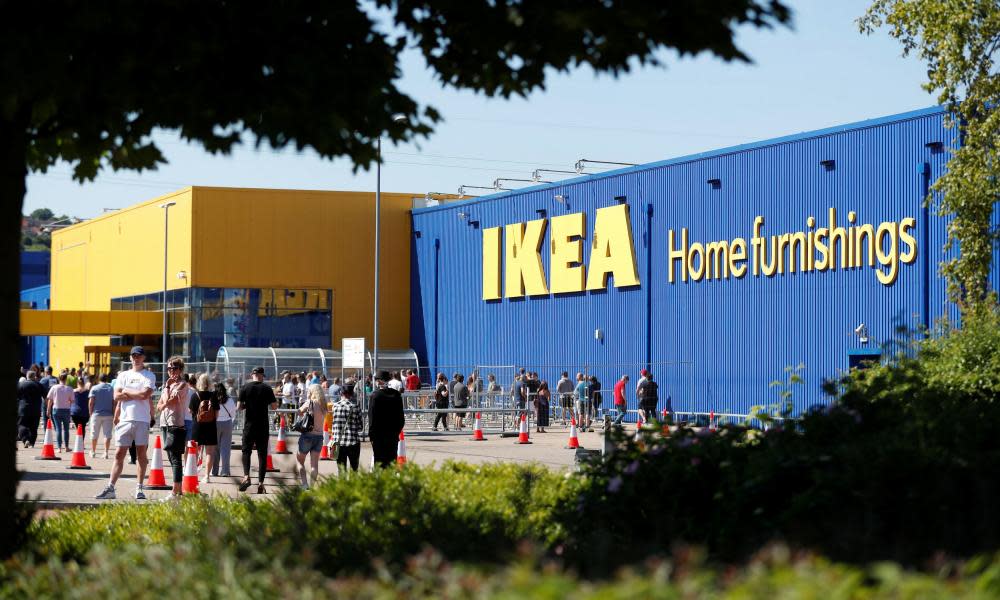Far too soon to ease lockdown in north-east England, leaders warn

Political leaders in the north-east of England have urged residents to disregard the government’s “reckless” relaxation of the lockdown amid concerns it will lead to a second spike of coronavirus in a region with the UK’s highest infection rate.
On the day that some primary schools reopened and people were allowed to meet more family and friends in England, council leaders and MPs warned that the easing of the measures had come “far too soon” in the north-east.
Martin Gannon, the leader of Gateshead council, which has the second-highest rate of infections in the UK, said: “The current approach from government is reckless and they haven’t put systems in place to keep it safe.
“Our advice is that [people] should be staying with the initial advice, which was lockdown, stay socially isolated within our homes until such time as we can have an effective testing, tracking and tracing system in place.”
The north-east has the highest per-capita infection rate of any region in the UK. It is thought to be particularly vulnerable given its relatively high proportion of people with secondary illnesses linked to heavy industry, such as mining and shipbuilding. Of the 10 worst-affected local authorities, the top four are all in the north-east: Sunderland, Gateshead, South Tyneside and Middlesbrough.
The region’s current R value – the number of people an infected person will on average infect – is the highest in the UK, at 0.8, double the rate in London, according to analysis by Cambridge University scientists working with Public Health England. If the R value reaches 1, it means the virus is spreading.
R, or the 'effective reproduction number', is a way of rating a disease’s ability to spread. It’s the average number of people on to whom one infected person will pass the virus. For an R of anything above 1, an epidemic will grow exponentially. Anything below 1 and an outbreak will fizzle out – eventually.
At the start of the coronavirus pandemic, the estimated R for coronavirus was between 2 and 3 – higher than the value for seasonal flu, but lower than for measles. That means each person would pass it on to between two and three people on average, before either recovering or dying, and each of those people would pass it on to a further two to three others, causing the total number of cases to snowball over time.
The reproduction number is not fixed, though. It depends on the biology of the virus; people's behaviour, such as social distancing; and a population’s immunity. A country may see regional variations in its R number, depending on local factors like population density and transport patterns.
Hannah Devlin Science correspondent
In Sunderland, which has the highest infection rate in the country, the city council leader, Graeme Miller, said the council was still urging residents to “stay at home” – the government’s original message – and not encouraging people to meet with others. He said the lockdown had been “forgotten” at the weekend and that the city had been “full of people not socially distancing”.
“To open schools up, when we can’t guarantee safety and when you’ve now got the ability to meet in groups of six, is terribly reckless,” Miller said, adding that he accepted the need to get the economy back on its feet but that “the way they’re doing it at the moment is terribly dangerous”.
In South Tyneside, only one of 54 primary schools reopened its doors to more pupils on Monday. Most of the region’s local authorities have advised primary schools not to open before next Monday.
Iain Malcolm, the leader of South Tyneside council, said he would prefer schools not to reopen until September owing to concerns over safety and potential second spike in cases.
Malcolm said the relaxation of the measures had come too soon for the north-east and that councils could take action collectively to impose some form of local lockdown if there was an increase in infections. “You’re gambling with people’s health here and there’s going to be a health consequence. I really fear that people are going to die because there’s going to be a spike here if we’re not careful,” he said.
“We have to keep making it clear to people that if you are going to meet with your family and your friends in small numbers, you must still maintain that social distance and regularly washing your hands.”
Emma Lewell-Buck, the MP for South Shields, said people had “flooded” to the region’s coast in recent days and that “it was as if nothing had ever happened”.
The new government guidance was “reckless and causing confusion”, she said. “I’m being more cautious than the government and saying that you need to stick to ‘stay at home’ measures and you need to stick to social distancing because we have high infection rates in the north-east. In South Tyneside, we’re a hotspot within that and I don’t want any more of my constituents to die from this.”

 Yahoo Movies
Yahoo Movies 
